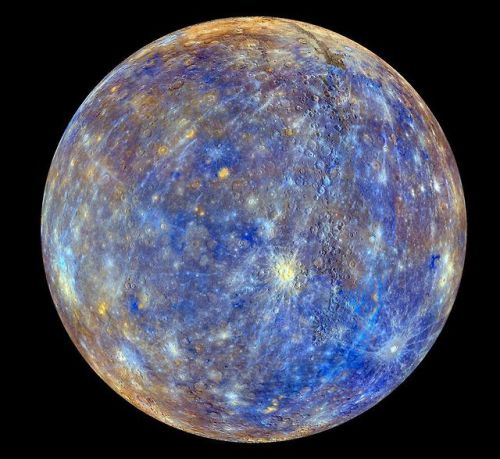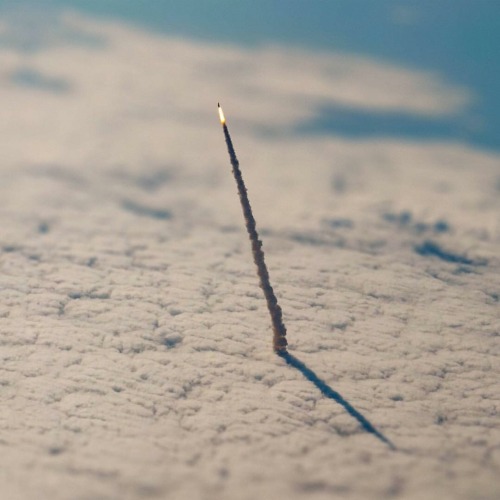Here Is a Time Lapse Of The International Space Station flying Over the Earth.
Here is a time lapse of the International Space Station flying over the earth.
More Posts from Alitheastronomer and Others
Well you're not wrong
true space facts
if u look up there it is

Favourite APOD of 2015, #10 (October): A Gegenschein Lunar Eclipse
There’s so much going on in this photo! The Gegenschein is the faint, blueish glow you can see rising from the horizon and going behind the eclipsed Moon.
Runner-ups:

The Witch Head Nebula

Starburst Galaxy Messier 94

Hubble Sees a Galactic Sunflower : The arrangement of the spiral arms in the galaxy Messier 63, seen here in an image from the NASA/ESA Hubble Space Telescope, recall the pattern at the center of a sunflower.
js
That video is fascinating, I can't stop watching it!
Blizzard 2016 from Space
As an intense winter storm approaches the mid-Atlantic this weekend, our satellites watch from above. The storm is expected to produce a wade swath of more than 2 feet of snow in some areas.

The below supercomputer simulation crunched the data to provide a look at the flow of clouds from storm systems around the globe, including the developing blizzard across the eastern United States.
This storm won’t only have a snowy impact on the mid-Atlantic region, but will also cause severe weather in the Gulf Coast. Satellites observe extreme rainfall in the area.

Data from NASA-NOAA Suomi NPP satellite and NOAA’s GOES-East satellite are being used to create images and animation of the movement of this powerful storm. For updates, visit: http://www.nasa.gov/feature/goddard/2016/nasa-sees-major-winter-storm-headed-for-eastern-us

Make sure to follow us on Tumblr for your regular dose of space: http://nasa.tumblr.com
These colors are amazing!








Aja Apa-Soura van gogh never saw golden gate van gogh never saw the great wall van gogh never saw christ the redeemer van gogh never saw stonehenge van gogh never saw eiffel van gogh never saw mount fuji van gogh never saw hollywood van gogh never saw taj mahal
more by Aja Apa-Soura: x

Hickson 91 in Piscis Austrinus by Johannes Schedler

Apparently this is “The clearest photo of Mercury ever taken.”

Tilt-shift photo of the space shuttle Endeavor by NASA
Solar System: 5 Things To Know This Week
Our solar system is huge, so let us break it down for you. Here are 5 things to know this week:
1. You Call the Shots

This July, when the Juno mission arrives at Jupiter, it will eye the massive planet with JunoCam. What adds extra interest to this mission is that the public is invited to help Juno scientists choose which images JunoCam will take. Now is the time to get involved.
2. Dawn Delivers

We’ve seen several images now from the Dawn spacecraft’s new, close orbit around Ceres—and they don’t disappoint. Exquisitely detailed photos of the dwarf planet reveal craters, cliffs, fractures, canyons and bright spots in many locations. “Everywhere we look in these new low-altitude observations, we see amazing landforms that speak to the unique character of this most amazing world,” said the mission’s principal investigator.
3. Remembering the Visit to a Sideways World

Jan. 24 is the 30th anniversary of Voyager 2’s Uranus flyby. The seventh planet is notable for the extreme tilt of its axis, its lacy ring system and its large family of moons—10 of which were discovered thanks to Voyager’s close encounter. In fact, we learned much of what we know about the Uranian system during those few days in 1986.
4. A Decade in the Deep

The New Horizons spacecraft left Earth 10 years ago this week. Its long voyage into deep space is, even now, transforming our understanding of the outer solar system. New data and pictures from the Pluto flyby are still streaming down from the spacecraft. Pending the approval of an extended mission, New Horizons is en route to a 2019 rendezvous with a small, unexplored world in the distant Kuiper Belt.
5. Power at a Distance

Space exploration helped drive the development of practical solar cells, and now solar power has gone farther than ever before. Last week, NASA’s Juno spacecraft broke the record for the most distant solar-powered craft when it passed a distance of 493 million miles (793 million kilometers) from the sun. The four-ton Juno spacecraft draws energy from three 30-foot-long (9-meter) solar arrays festooned with 18,698 individual cells.
Want to learn more? Read our full list of the 10 things to know this week about the solar system HERE.
Make sure to follow us on Tumblr for your regular dose of space: http://nasa.tumblr.com
-
 tidulwave reblogged this · 7 months ago
tidulwave reblogged this · 7 months ago -
 i-m-weak-my-love reblogged this · 2 years ago
i-m-weak-my-love reblogged this · 2 years ago -
 blue-skys0 liked this · 2 years ago
blue-skys0 liked this · 2 years ago -
 melancholic-addiction liked this · 2 years ago
melancholic-addiction liked this · 2 years ago -
 transgendad liked this · 2 years ago
transgendad liked this · 2 years ago -
 pressdbtwnpages liked this · 2 years ago
pressdbtwnpages liked this · 2 years ago -
 midnightwings-n reblogged this · 2 years ago
midnightwings-n reblogged this · 2 years ago -
 midnightwings-n liked this · 2 years ago
midnightwings-n liked this · 2 years ago -
 morwennastower liked this · 2 years ago
morwennastower liked this · 2 years ago -
 liamrobertsheasby reblogged this · 2 years ago
liamrobertsheasby reblogged this · 2 years ago -
 liamrobertsheasby liked this · 2 years ago
liamrobertsheasby liked this · 2 years ago -
 rhube reblogged this · 2 years ago
rhube reblogged this · 2 years ago -
 colinburbleswithhappiness reblogged this · 2 years ago
colinburbleswithhappiness reblogged this · 2 years ago -
 chickencourtesan liked this · 2 years ago
chickencourtesan liked this · 2 years ago -
 jkathleencheney reblogged this · 2 years ago
jkathleencheney reblogged this · 2 years ago -
 jkathleencheney liked this · 2 years ago
jkathleencheney liked this · 2 years ago -
 stuffiwantdavetosee reblogged this · 2 years ago
stuffiwantdavetosee reblogged this · 2 years ago -
 joomju liked this · 2 years ago
joomju liked this · 2 years ago -
 tamthewriter reblogged this · 2 years ago
tamthewriter reblogged this · 2 years ago -
 enamoradaeverlark liked this · 2 years ago
enamoradaeverlark liked this · 2 years ago -
 books-and-a-netflix-account reblogged this · 2 years ago
books-and-a-netflix-account reblogged this · 2 years ago -
 mega-aulover reblogged this · 2 years ago
mega-aulover reblogged this · 2 years ago -
 mega-aulover liked this · 2 years ago
mega-aulover liked this · 2 years ago -
 live-positively-darling reblogged this · 2 years ago
live-positively-darling reblogged this · 2 years ago -
 live-positively-darling liked this · 2 years ago
live-positively-darling liked this · 2 years ago -
 boyscout62 reblogged this · 2 years ago
boyscout62 reblogged this · 2 years ago -
 boyscout62 liked this · 2 years ago
boyscout62 liked this · 2 years ago -
 abumala liked this · 2 years ago
abumala liked this · 2 years ago -
 crispywagonwinnerangel liked this · 2 years ago
crispywagonwinnerangel liked this · 2 years ago -
 matetikus liked this · 2 years ago
matetikus liked this · 2 years ago -
 healthcarehospitality reblogged this · 2 years ago
healthcarehospitality reblogged this · 2 years ago -
 hicapacity liked this · 2 years ago
hicapacity liked this · 2 years ago -
 angelofghetto reblogged this · 2 years ago
angelofghetto reblogged this · 2 years ago -
 oldgreyhamster liked this · 2 years ago
oldgreyhamster liked this · 2 years ago -
 onborrowedwords reblogged this · 2 years ago
onborrowedwords reblogged this · 2 years ago -
 rusticlonging liked this · 2 years ago
rusticlonging liked this · 2 years ago -
 weirdbizarremomentsintime reblogged this · 2 years ago
weirdbizarremomentsintime reblogged this · 2 years ago -
 ladiesfirstalways liked this · 2 years ago
ladiesfirstalways liked this · 2 years ago -
 esthetiqueillusion liked this · 2 years ago
esthetiqueillusion liked this · 2 years ago -
 mylionheart2 liked this · 2 years ago
mylionheart2 liked this · 2 years ago -
 manlover2 liked this · 2 years ago
manlover2 liked this · 2 years ago -
 hberrie72 reblogged this · 2 years ago
hberrie72 reblogged this · 2 years ago -
 hberrie72 liked this · 2 years ago
hberrie72 liked this · 2 years ago
